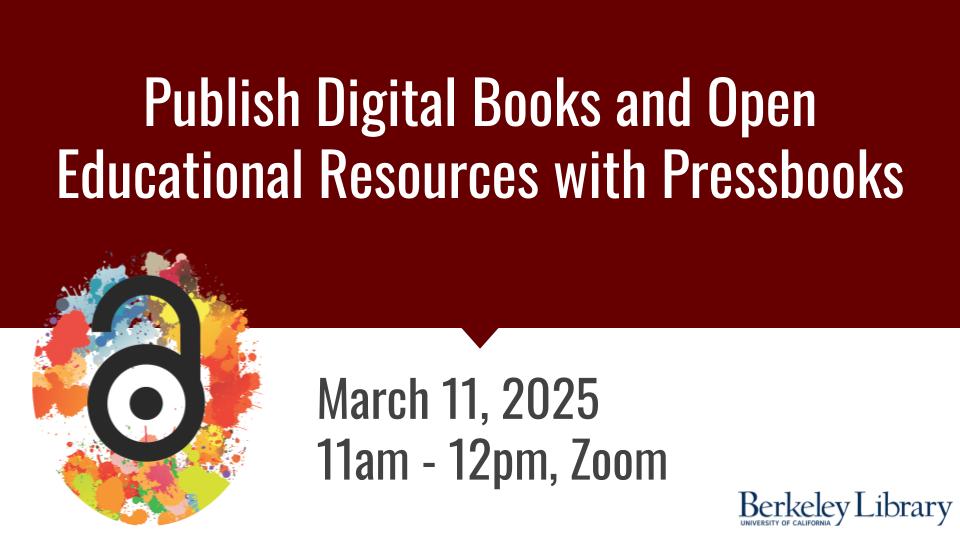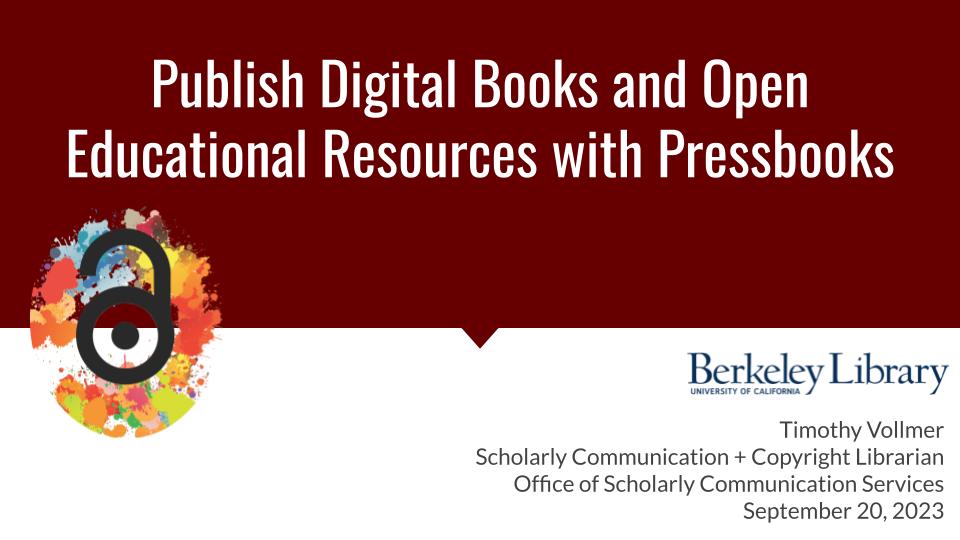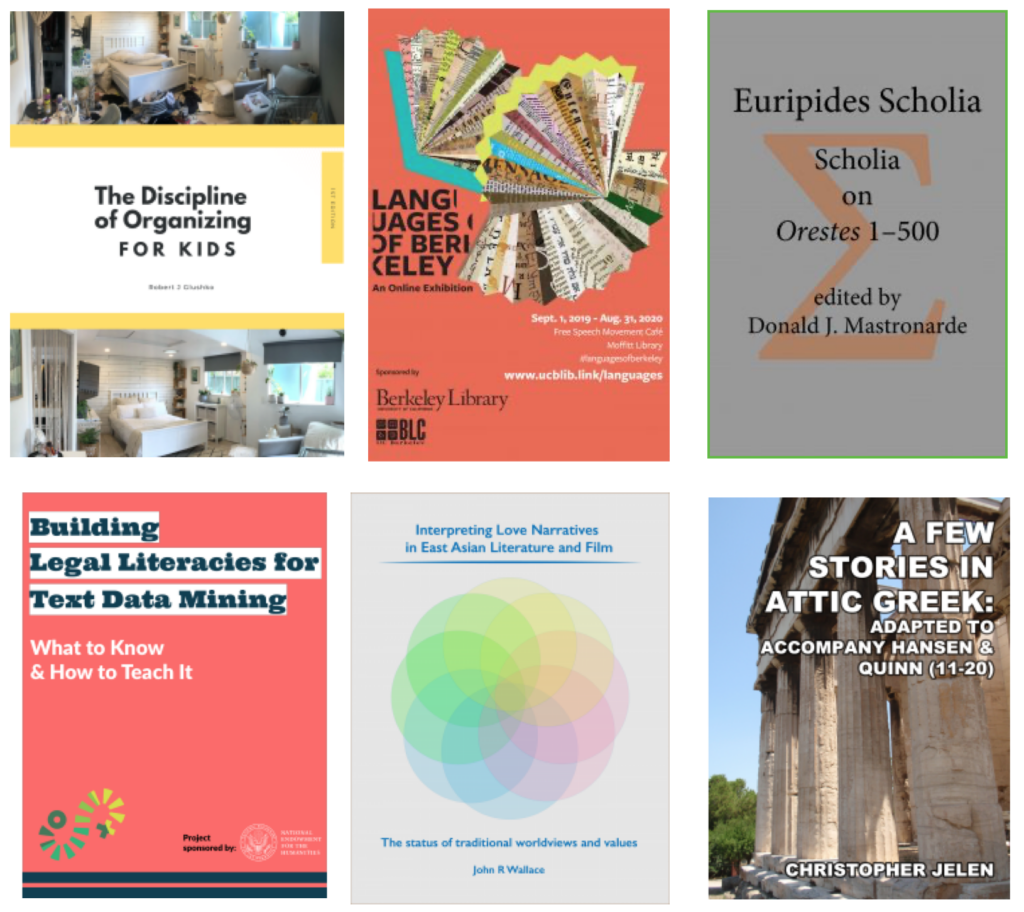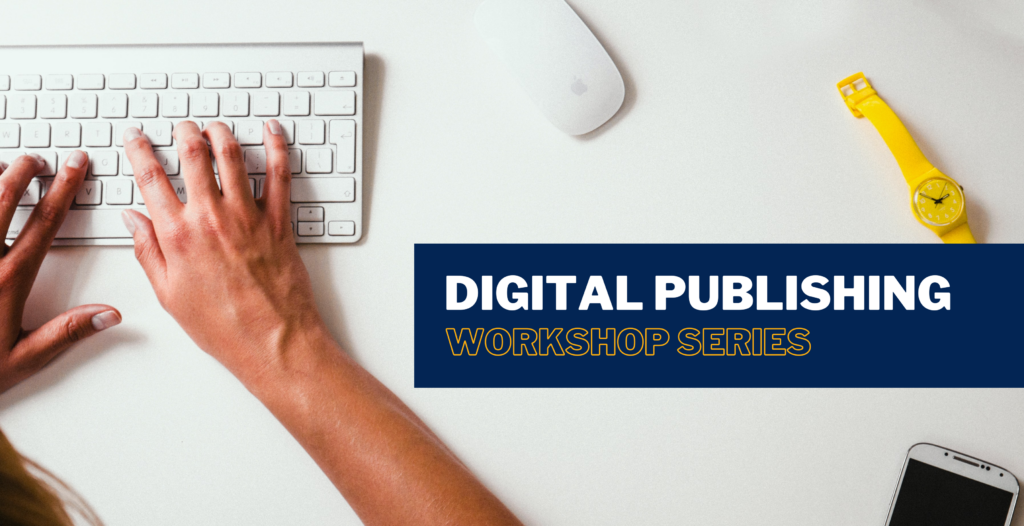Date/Time: Tuesday, March 11, 2025, 11:00am–12:00pm
Location: Zoom. RSVP.
If you’re looking to self-publish work of any length and want an easy-to-use tool that offers a high degree of customization, allows flexibility with publishing formats (EPUB, PDF), and provides web-hosting options, Pressbooks may be great for you. Pressbooks is often the tool of choice for academics creating digital books, open textbooks, and open educational resources, since you can license your materials for reuse however you desire. Learn why and how to use Pressbooks for publishing your original books or course materials. You’ll leave the workshop with a project already under way.
Curious about how UC Berkeley faculty, students, and staff have used Pressbooks? Check out some of the Berkeley-created digital books and resources below, or browse over 8,000 open access books on the Pressbooks Directory.



